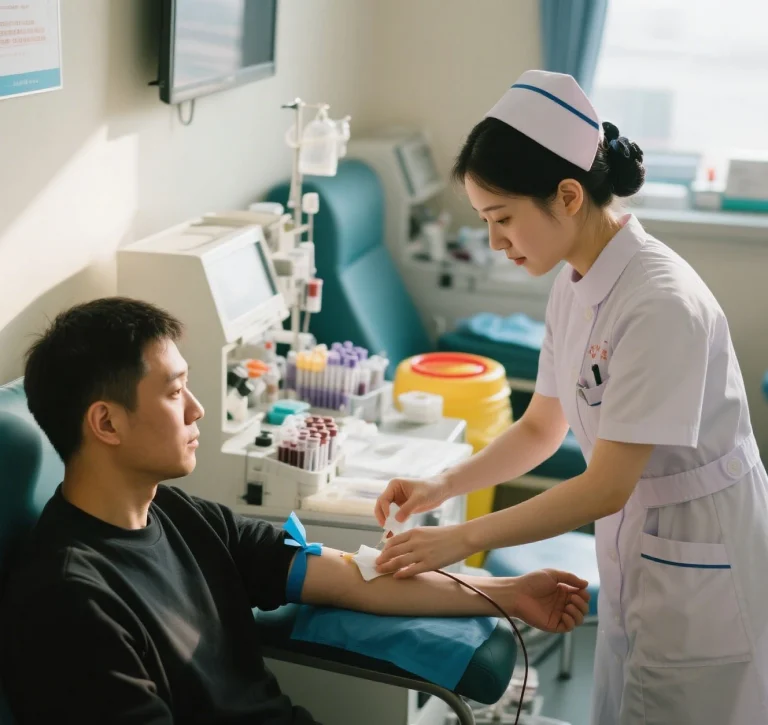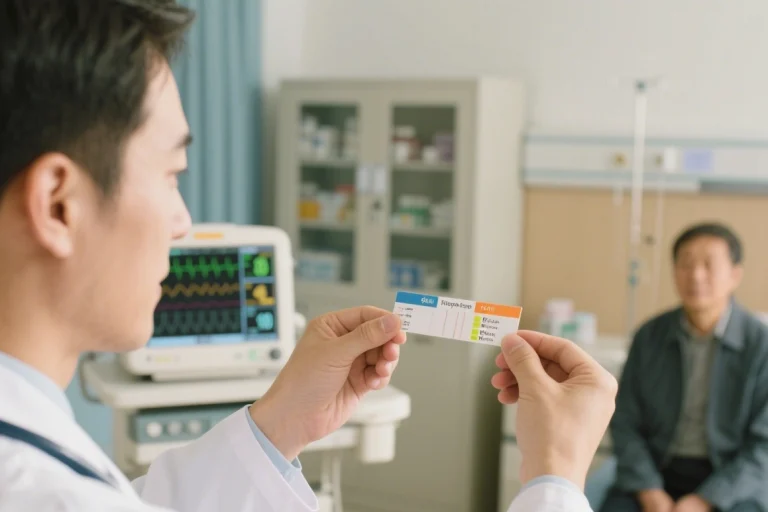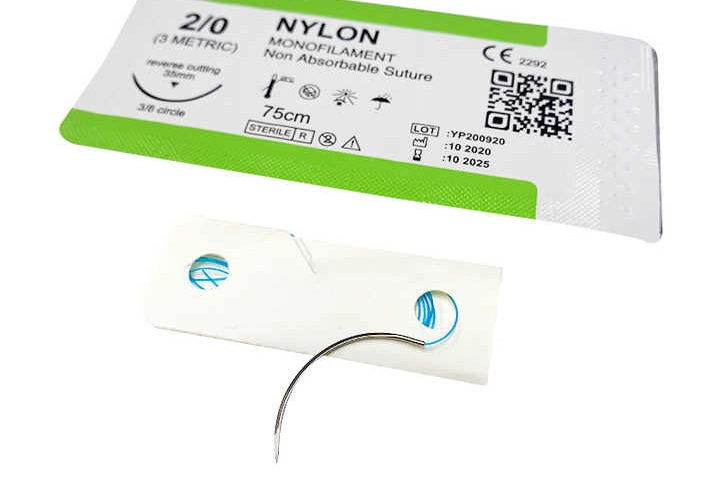Medical sutures are essential tools in the healthcare industry, used for closing wounds and securing tissues after surgeries or injuries. Their importance lies in their ability to promote healing and minimize scarring, enabling patients to recover effectively. A deeper understanding of various medical sutures is essential for healthcare professionals who choose appropriate suture types based on individual patient needs and medical scenarios. As technology advances, the quality and functionality of sutures have significantly improved, leading to specialized options that cater to diverse medical requirements.
Understanding Medical Sutures
Definition and Importance of Sutures in Medical Practice
Sutures are materials used to close incisions or lacerations, facilitating the healing process by holding tissues together. They can be classified based on their absorbing properties and intended functionality. In medical practice, the choice of suture type is crucial, as it directly impacts wound healing times and complication rates. Their correct application helps in preventing infection and ensuring that the healing tissues remain intact.
Historical Context of Suture Development
The origins of sutures date back to ancient civilizations where various materials, such as animal intestines and natural fibers, were used to close wounds. Over the centuries, the development of sutures has evolved significantly, moving from organic materials to synthetic options that are more effective and reliable. Today, a vast array of medical sutures exists, providing healthcare professionals with numerous choices tailored to distinct surgical needs.
The Role of Medco in Offering High-Quality Sutures

Medco plays a vital role in providing healthcare providers with a wide range of high-quality sutures. As a trusted supplier, Medco is committed to ensuring that its products meet stringent quality standards. Their sutures are manufactured with advanced technology and adhere to global medical certifications, making them a reliable choice for medical professionals seeking effective closure solutions for surgical applications. In addition, Medco is also dedicated to develop other products in the fields of diagnostic instruments, rehabilitation appliance, and dental product etc. For example, Medco’ diagnostic instruments are high-quality, advanced and diversified, such as smart blood glucose meters, which involves several types to meet different clients’ requirement.
Types of Medical Sutures
Absorbable Sutures
Characteristics and Composition
Absorbable sutures are designed to dissolve naturally in the body over time, eliminating the need for removal. Typically composed of materials such as polyglycolic acid or catgut, these sutures are absorbed by hydrolysis, making them suitable for internal use where conventional removal would be impractical. Their ability to reduce the risk of post-operative complications, such as infection, makes them a preferred choice for many types of surgeries.
When to Use Absorbable Sutures
Absorbable sutures are frequently employed in procedures where tissues heal rapidly, such as in soft tissues, subcutaneous closures, or internal organs. They are ideal for pediatric surgeries, as patients do not have to return for suture removal. Providing long-term support during the healing process, these sutures are advantageous in areas where sutures cannot be easily accessed.
Non-Absorbable Sutures
Key Features and Materials Used
Non-absorbable sutures are designed to remain intact in the body for an extended period, often made from materials like silk, nylon, or polypropylene. Known for their strength and durability, these sutures are often used in procedures requiring long-term tissue support such as orthopedic surgeries or in cases of high tension. Their properties prevent tissue separation and facilitate secure closures.
Practical Scenarios for Non-Absorbable Sutures
Non-absorbable sutures are commonly used when prolonged support is needed or when the risk of infection requires certain sutures to remain in place indefinitely. Surgeons utilize these sutures in scenarios like closure of skin lacerations, orthopedic repairs, and when sutures may be required for months to ensure optimal healing and stability of tissues.
Comparison Between Absorbable and Non-Absorbable Sutures
Strength and Durability Factors
The comparison between absorbable and non-absorbable sutures centers on their respective strength and durability. Absorbable sutures gradually lose their tensile strength as they dissolve, while non-absorbable sutures maintain their integrity until they are manually removed or they naturally degrade. Physicians often choose non-absorbable options for high-stress areas where consistent support is critical, whereas absorbable sutures are preferable when the anatomical environment allows for quicker healing.
Healing Time Considerations
Healing time plays a pivotal role in the choice between absorbable and non-absorbable sutures. Absorbable types provide temporary support for a short duration, aligning with healing timelines. Non-absorbable sutures offer prolonged tensile strength, suitable for areas that require sustained support during the healing process, which can extend for weeks or months.
Examination of Medco’s Absorbable vs Non-Absorbable Suture Products
Medco’s range of products includes both absorbable and non-absorbable sutures, each crafted to meet specific surgical requirements. Their absorbable sutures are designed for rapid healing scenarios, offering professional healthcare providers a reliable closing solution without the hassle of post-operative visits. Conversely, Medco’s non-absorbable lines are engineered for cases needing enduring support, ensuring patients receive optimal care across varied medical applications.
Specific Types of Sutures and Their Applications
Monofilament Sutures
Description and Usages
Monofilament sutures are single-strand materials that provide a smooth surface, which helps in reducing tissue drag during application. Their design minimizes the risk of infection, as there are no interstices where bacteria can harbor. Monofilament sutures are particularly useful in delicate tissues and surgical areas where secure closure and reduced tissue trauma are critical. They are commonly utilized in cardiovascular, ophthalmic, and gastrointestinal surgeries.
Medco’s Monofilament Suture Offerings
Medco offers a diverse selection of monofilament sutures, which are manufactured with advanced technology to meet rigorous quality standards. These sutures are composed of materials such as polydioxanone, which combines strength with excellent handling characteristics. Medco’s monofilament sutures provide reliable holding power and are designed for various surgical applications, ensuring optimal performance for healthcare providers seeking effective closure options.
Braided Sutures
Structure and Advantages
Braided sutures consist of multiple filaments twisted together, providing greater tensile strength and flexibility compared to monofilament options. The braided structure allows for better knot security, which is essential in high-tension areas. Additionally, their increased surface area enhances tissue integration and reduces the likelihood of slipping. These sutures are commonly used in dermatological and orthopedic procedures where reliable closure is paramount.
Medco’s Braided Suture Solutions

Medco’s braided sutures feature an array of materials designed for different medical applications. These sutures are crafted to ensure optimal handling and knot-tying capabilities, which enhances the efficiency of surgical procedures. Medco prioritizes the quality of their braided sutures, providing healthcare professionals with trustworthy solutions that are suitable for both absorbable and non-absorbable applications.
Specialized Suture Techniques
Continuous vs. Interrupted Suturing Methods
Detailed Overview
Continuous and interrupted suturing are two fundamental techniques employed in surgical closures. The continuous method involves a single thread running through multiple tissue layers, which can save time and allow for uniform tension distribution. In contrast, the interrupted method involves individual stitches at distinct intervals, providing increased security in case of material breakage or tissue movement. Both techniques have their advantages and are selected based on the specific requirements of the surgical site.
Practical Application in Various Medical Scenarios
The choice between continuous and interrupted suturing techniques often depends on the location and nature of the surgery. Continuous suturing is advantageous in long linear wounds, such as those found in gastrointestinal surgeries, allowing for quick and effective closure. On the other hand, interrupted sutures are preferred in high-tension areas or for securing fragile tissues where individual stabilization is necessary. Surgeons must evaluate the context of each scenario to determine the most suitable technique.
Medco’s Support for Different Suturing Techniques
Medco provides a comprehensive range of products to support both continuous and interrupted suturing techniques. Their sutures are designed to be versatile, ensuring that healthcare providers can execute a variety of surgical procedures with precision and ease. By offering high-quality sutures tailored for different techniques, Medco contributes to effective surgical outcomes and enhances the overall patient experience.
Choosing the Right Suture Material
Factors to Consider in Material Selection
Tissue Type and Healing Properties
When selecting suture material, one must consider the characteristics of the targeted tissue and its healing properties. Different tissues have varying strengths and requirements for support during the healing process. Factors such as tissue type, expected healing duration, and potential for suture absorption should dictate the chosen suture type. It is essential for healthcare professionals to understand these dynamics to provide optimal care.
Patient-Specific Concerns
Patient-specific factors, including age, health status, and existing medical conditions, can profoundly impact suture selection. For example, pediatric patients may benefit more from absorbable sutures to avoid additional procedures for removal, while adult patients with certain health issues might require non-absorbable options due to healing challenges. Personalizing the choice of suture material can significantly influence recovery outcomes and minimize complications.
Medco’s Comprehensive Range of Suture Materials
Medco offers an extensive portfolio of suture materials designed to cater to diverse surgical needs. With both absorbable and non-absorbable options, Medco ensures that healthcare professionals have access to the right tools required for various procedures. Their commitment to quality assurance and innovative design enables Medco to support medical practitioners in delivering high-standard care, thereby facilitating optimal healing for patients across different demographic profiles.
Innovations in Suture Technology
Recent Advances in Medical Sutures
The evolution of medical sutures has undergone significant advancements that aim to enhance their functionality and performance during surgical procedures. Recent innovations include the development of bioengineered sutures that promote tissue healing while minimizing the risk of postoperative complications. Additionally, manufacturers are investing in smart suture technologies that can provide real-time monitoring of wound healing or deliver therapeutic agents directly to the tissue. Such advancements in suture technology not only improve surgical outcomes but also contribute to better patient satisfaction and reduced healthcare costs. Continuous research and development in this field ensures that medical professionals have access to state-of-the-art tools for achieving optimal surgical results.
Medco’s Contribution to Innovative Suture Solutions
Medco plays an essential role in the innovation of suture technology, dedicated to producing high-quality products that meet the evolving needs of healthcare providers. Their investment in research and development has led to a product line that integrates advanced materials and construction techniques, enhancing the mechanical properties of sutures. Medco’s focus on quality ensures that their sutures provide exceptional strength and reliability during surgical procedures. Furthermore, Medco collaborates with healthcare professionals to gather insights and feedback, enabling them to continually refine their products and introduce innovative solutions within the medical suture sector.
Besides innovative suture solutions, in other medical disposables, Medco also reflect their determination to develop perfect products for clients, such as Medco’ s infant/neonate heated wire breathing circuit with HFNC.
Practical Application Examples using Medco Products
General Surgery Applications
One of the primary fields where Medco’s sutures are applied is in general surgery, where diverse types of sutures are used depending on the specific needs of the surgical procedure. Medco provides absorbable sutures that are commonly used for subcutaneous tissue closures, enabling rapid healing while minimizing the need for further intervention. For more complex procedures, non-absorbable options are also available, providing lasting support that is essential for high-tension areas. These products are designed to efficiently and effectively facilitate the closure of soft tissues, enabling surgeons to achieve desired outcomes while maintaining patient safety.
Case Stories Highlighting Efficacy
In one case involving abdominal surgery, a surgeon utilized Medco’s absorbable sutures for closing the fascial layer, which resulted in a significant reduction in postoperative complications and improved patient recovery times. Another case in a bariatric procedure involved the use of Medco’s non-absorbable sutures to secure muscle layers, allowing for optimal healing. Feedback from surgeons highlighted that the sutures’ innovative design enabled easy handling and secure anchoring, which contributed to the overall success of the surgeries. These case stories exemplify the positive impact that Medco’s suture products have on surgical efficacy and patient outcomes.
Specialized Surgical Procedures
Beyond general surgery, Medco’s suture products find applications in specialized surgical procedures, where precision and durability are paramount. For instance, in orthopedic surgeries, Medco’s braided sutures offer superior strength and knot security, essential for closure of high-tension areas such as tendon and ligament repairs. These sutures are specifically engineered to handle the stresses of active recovery and provide enduring support until the tissue is fully healed. In ophthalmic surgery, Medco’s monofilament options are often employed due to their minimal tissue trauma and reduced risk of infection, ensuring a safer procedure for the sensitive eye area.
Real-life Utilization of Medco’s Range
A notable instance of Medco’s sutures in specialized applications includes the use of their monofilament sutures during a delicate eye surgery, which allowed for precision closure while minimizing impact on surrounding tissues. The ease of handling and reliable performance led to a quick recovery for the patient. Additionally, a case in orthopedic surgery showcased the effectiveness of Medco’s braided sutures, with the surgeon praising their superior strength and knot security during tendon repair procedures. Such real-life utilizations underscore the versatility and reliability of Medco’s suture products within the medical field.




